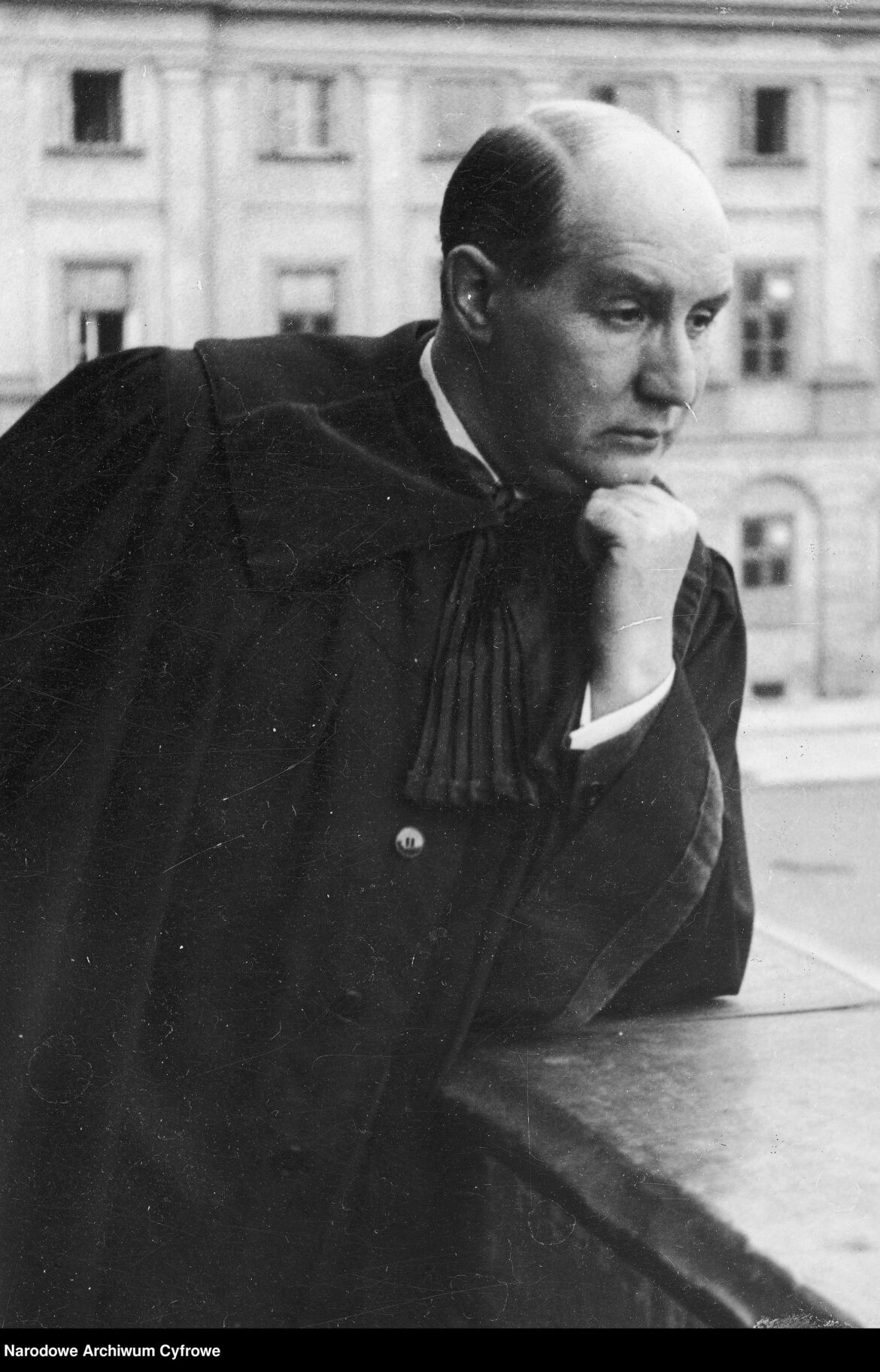The famous inter-war lawyer Maurycy Axer, famous for the Rita Gorgonowa case, shaped his views on the assimilation of Jews under the influence of Herman Lieberman, who was a strong promoter of it. Active in the Polish Socialist Party (PPS), Axer became an active left-wing Polish patriot.
Maurycy Axer was born on 4 June 1886 in Przemyśl, into the Jewish family of a tax official. His parents gave him the name Moritz Joachim, which he used until 1921. In 1904, he graduated from the First Gymnasium in Przemyśl. He then studied law at the C.K. University of Franz I in Lwów (today’s Lviv). After graduation, he became a lawyer, initially working in the law office of Herman Lieberman (1870-1941), who practised in Rzeszów and Przemyśl.
During World War I, M. Axer served in the Austrian army. In 1916, he married Ernestine Fredericka Schuster, a Jewish woman living in Baden near Vienna. They had two children, Erwin (1917-2012) and Henryk (1918-1943). In the interwar period, M. Axer quickly became famous, not least because, irrespective of his own views, he defended arrestees on political grounds (including communists). He also did not charge fees to people who could not afford a lawyer. His greatest fame came with the controversial case of the governess Rita Gorgonowa, who was accused of murdering her employer’s daughter.
At the beginning of the Second World War, Lwów was occupied by the Soviets. At that time, M. Axer resigned from his law practice. He managed to survive the Soviet occupation and the extermination of the Jewish population organised by the Germans and Ukrainian nationalists after the German army entered Lwów in the summer of 1941. However, he was arrested, by accident, in September 1942. He probably died in the German extermination camp in Bełżec, and it is also possible that he tried to escape from a transport but was recaptured and shot by the Germans. His wife survived the war, as did his older son, Erwin, who went on to make a name for himself as a theatre director after the war. His younger son Henryk was sent to the Janów camp in Lwów, where he was murdered in 1943.





